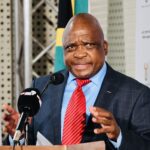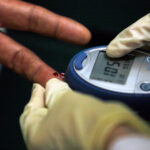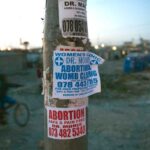After 14 years of delays, the Health Professions Council should have seen what was coming in the Wouter Basson case.
NEWS ANALYSIS
The room at the Health Professions Council of South Africa in Pretoria was filled for the umpteenth time for Wouter Basson’s disciplinary and sentencing hearings this week.
In December 2013, the former chief of apartheid South Africa’s biological and chemical warfare programme in the 1980s was found guilty of unprofessional conduct by the council.
It found that he had acted unethically as a medical doctor when he was head of the programme, code-named Project Coast. It accepted that Basson had, for example, produced drugs such as ecstasy and “new-generation” teargas and other chemical agents for use against “enemies of the state”. He had also manufactured cyanide, to be used by apartheid foot soldiers to commit suicide if they were captured during operations in neighbouring countries.
The council’s professional conduct committee, which will hand down Basson’s sentence, heard the evidence of witnesses who argued that Basson’s medical licence should be revoked.
The committee took 13 years to find Basson guilty. His sentencing has dragged on for more than a year. Basson’s legal team are experts at delaying proceedings. Many would question their choice of clients, but only fools would question their skills.
In 2006, advocate Jaap Cilliers was pivotal in helping Jacob Zuma be acquitted of rape charges.
Cilliers and Basson’s attorney, Wynanda Coetzee, represented former police commissioner Jackie Selebi in his corruption trial. Although Selebi was found guilty of corruption in 2010, the pair battled successfully for his release on medical parole in 2012. He served only 229 days of his 15-year sentence and that in the hospital wing of Pretoria Central Prison.
The state paid the Selebi legal team’s costs, as it is doing for Basson.
Legal bills
The council will not reveal the heart surgeon’s legal bill so far, but it is likely to be in the millions.
Selebi’s legal and medical bills amounted to about R17-million. His court case lasted for two years and four months, six times less than Basson’s disciplinary hearing.
Those who want Basson barred say his legal team is deliberately delaying the hearings to allow him to run his private medical practice in Durbanville for as long as possible.
Regardless of Basson’s reasons for the hearings’ constant postponements, buying time has become easy: the council has regularly submitted documents late and some evidence it has presented has contained mistakes. Such aberrations repeatedly open up the opportunity for Basson’s lawyers to present arguments about which documents should be accepted as legitimate, and which not.
In November, the committee was presented with a petition compiled by the social justice organisation, Section27. It contained the signatures of 230 medical professionals who want Basson removed from the medical roll. But mistakes in the document allowed Cilliers to bombard Section27’s Mark Heywood ceaselessly with questions, and repeatedly preferred to refer to him as “Mr Heyman”, despite several corrections.
For example, Cilliers pointed out that two doctors had signed the petition more than once, forcing Heywood to admit the error, apologise to the panel, and to insist that the mistake was not a “deliberate misrepresentation”. Then Cilliers revealed that one of the doctors had signed the petition three times, to which Heywood replied: “Um, I had not picked that up.”
The advocate later asked Heywood why the petition should be viewed seriously when there were 39?000 registered medical practitioners in the country.
Influential signatories
Heywood told the Mail & Guardian that he considered it an inappropriate question. “Our aim with it was never to get numbers; it was rather to get senior, influential people to sign. The amount of signatures didn’t impact the weight the petition carried.”
Nevertheless, Cilliers was smiling.
On Monday Basson’s legal team launched another strategy: questioning the impartiality of sentencing committee chairperson Jannie Hugo.
Hugo, Cilliers said, was a member of one of the organisations that signed another petition demanding that Basson should not be allowed to practice as a surgeon – the South African Medical Association. In a court document that was submitted this week, it also emerged that Hugo is a member of the Rural Doctors Association of South Africa, which also signed the petition.
The council’s legal team should have foreseen this, particularly after 14 years of dealing with Basson’s formidable legal team.
Basson wanted the proceedings postponed until Hugo, and other committee members, had declared their affiliations to organisations opposed to their client. But Hugo refused and continued.
Basson and his legal team left the hearing and went directly to the high court to apply for an interdict, compelling the committee to postpone the hearings until the application could be heard on Wednesday.
Answering affidavit
On Wednesday morning, Basson’s legal team told the M&G that the council had filed its answering affidavit so late that the court had to postpone the hearing to Thursday. The council admitted this.
It was yet another battle won for Basson and his lawyers in a seemingly endless war.
On Thursday afternoon the court reserved judgment on the matter until Friday, which means the sentencing hearing cannot continue this week. The next sitting is scheduled for March 12.
If the past is anything to go by, that might not happen either.
The never-ending game of cat and mouse
October 1999: Criminal trial begins.
October 2000: Professional misconduct complaint, signed by 40 doctors, filed with the Health Professions Council of South Africa. It and Basson’s counsel agree to delay the matter until the outcome of the criminal case.
April 2002: Basson is acquitted.
November 2007: Council inquiry begins but is postponed until September 2008.
November 2008: Basson’s team approaches the high court to halt the inquiry, citing it as “unlawful”.
May 2010: The matter is dismissed by the high court.
March 2011: Inquiry is set to resume but Cilliers is representing police commissioner Jackie Selebi.
January 2012: Application for a discharge brought before the council is not granted and the matter is set to continue in March.
March 2012: Former South African National Defence Force surgeon general Neil Knobel appears as a witness for Basson.
September 2012: Inquiry postponed because of Knobel’s health.
December 2012: Inquiry postponed as the defence witness is unavailable.
April 2013: Matter continues and is postponed to July to assess Knobel’s health.
July 2013: Inquiry resumes. Knobel is cross-examined.
December 2013: Council finds Basson guilty of unprofessional conduct.
November 2014: Sentencing hearing begins, but is postponed to January 2015.
January 19-20 2015: Sentencing hearings resume. Basson files a high court application to recuse the professional conduct committee chairperson. – Compiled by Amy Green. Source: HPCSA











